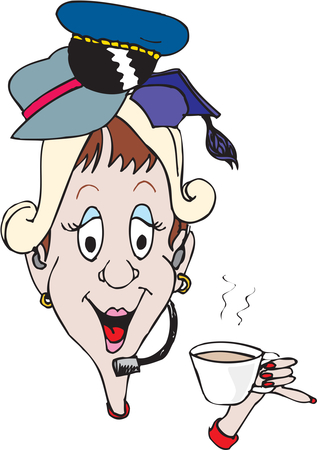
√ Campus Life.
√ Communications.
√ Computers.
√ Campus Life.
√ Ecology.
√ History.
√ Communications.
√ Computers.
√ Campus Life.
√ Ecology.
√ History.
01 Campus Life
M: Umm, I need to apply for a room change. I’m having some problems
with my roommate. Is this where I’m supposed to come?
W: Yes, it is. However, we don’t grant room change requests except
under special circumstances. If you have a roommate conflict you
have to try to resolve it first using the conflict resolution procedure.
M: Oh, all right. What’s the procedure?
W: Basically, you get all the roommates involved together and each
one conveys their perspective. Then, you make a plan on how to
resolve the problem, and each roommate commits to making the
necessary changes. After one month, there’s a formal review.
M: OK, thanks. I guess we’ll try that then.
02 Communications
W: The most important element in communication theory is input.
Input includes all of the information we receive from the external
world. People have the ability to filter this information if there
is too much of it. There are biological and psychological filters.
Biological means a person can only process and retain so much
information at a time. For instance, a student cannot remember
everything said in a lecture, so he or she takes notes on key points.
The psychological filter is like selective attention, or “you hear
what you want to hear.” So, information a person is not interested
in doesn’t ever get processed.
03 Computers
M: A computer communicates with a printer via a parallel port.
This means that the 8 bits within the byte are all sent simultaneously,
instead of one at a time. We call this serial communication, and
it occurs through serial ports. The printer port has 25 pins. Pin
1 tells the printer that data is being sent. Pins 2-9 transmit the
8 bits of information in each byte. Pin 10 relays the confirmation
signal to the computer. Pins 11 through 16 are for various functions
such as printer error, out of paper, print job ready, etc. Pin 17 takes
the printer offline. 18 through 25 are grounding pins. Let’s compare
that to another port on our computer.
04 Campus Life
W: I’d like to get a parking permit for the summer months. I know permits are normally issued through a lottery. Is that the case in the summer as well?
M: No, ma’am. There is a lot less demand in the summer. You can simply purchase a ticket.
W: Phew. That’s just what I wanted to hear! I know it is $120.00 for the school year. How much for the summer?
M: $12.00 per month.
W: Can I buy it here?
M: Yes. I just need to see proof that you are enrolled in a summer course.
W: I haven’t enrolled yet.
M: Well, you need to do that first and then come back here to the parking office with the documents. Then, we’ll take your payment and give you the permit.
05 Ecology
W: Many of you may be surprised to hear that pollution is not
necessarily a detrimental thing. In fact, it is perfectly natural. All
organisms create waste. This is a basic part of life. It is not even a
problem that the wastes are toxic. Many organisms also produce
wastes that are toxic to themselves. There are, however,
two problems with human pollution. First, it includes materials
that the ecosystem cannot break down. For instance, we created
CFCs, but nature cannot process them, so they float up and eat
away at the ozone layer. Secondly, human pollution occurs in
quantities that overload the ecosystem.
06 Campus Life
M: I just signed up for “Blast.”
W: “Blast”? What’s that?
M: It’s a volunteering program.
W: Really? I’ve been meaning to do some volunteer work. What does it involve?
M: Helping freshmen students, conducting surveys, handing out
flyers, making public announcements about events, and stuff
like that. It’s a good way to develop your public speaking skills.
W: It sounds great, but I don’t have a lot of free time this year. I’m trying to get into law school.
M: Law school? Then it’s perfect for you.
W: Yeah, I guess it would look good on my CV.
M: And it’s not a big obligation --- just 30 minutes every other week.
W: Is that all? I could handle that.
07 History
W: Today’s topic is the Middle Ages. We’ve talked at length about
the Roman Empire, and you’re well-versed in Renaissance life,
but what happened during the thousand years in between?
The truth is, not much. There was a large migration of people
into the former Roman territories, and this had a huge effect
on society, law, culture, and trade. Life was arduous, which is
perhaps why the one entity to survive the fall of the Roman
Empire was the Christian Church. Since the Church promised a
utopian afterlife to righteous followers, people had less incentive
to fight to change their conditions here on Earth.
08 Biology
M: As you know, plants create oxygen. They do this through a process
called photosynthesis. It is a chemical change occurring in the
leaves of green plants whereby carbon dioxide and water are
transformed into oxygen and glucose. Glucose can then be
transformed into a starch and stored for later use. Oxygen is
the “waste” of this process, but only in the sense that the plant
gets rid of it. What is waste for the plant is an invaluable resource
for the rest of us living creatures on Earth. In order for
photosynthesis to take place, there must be chlorophyll, carbon
dioxide, water, and sunlight.
